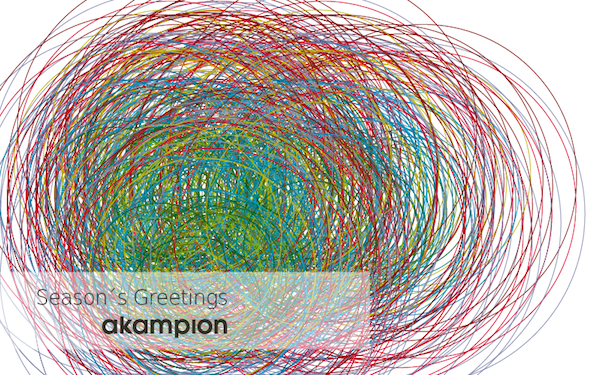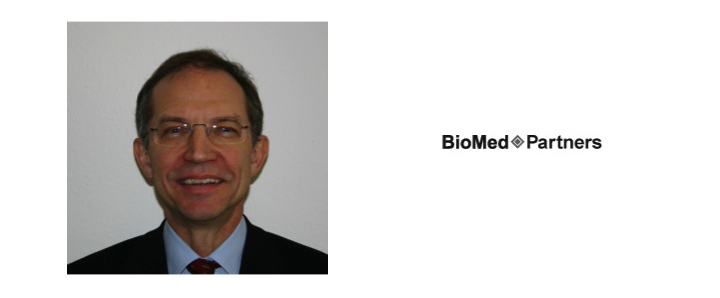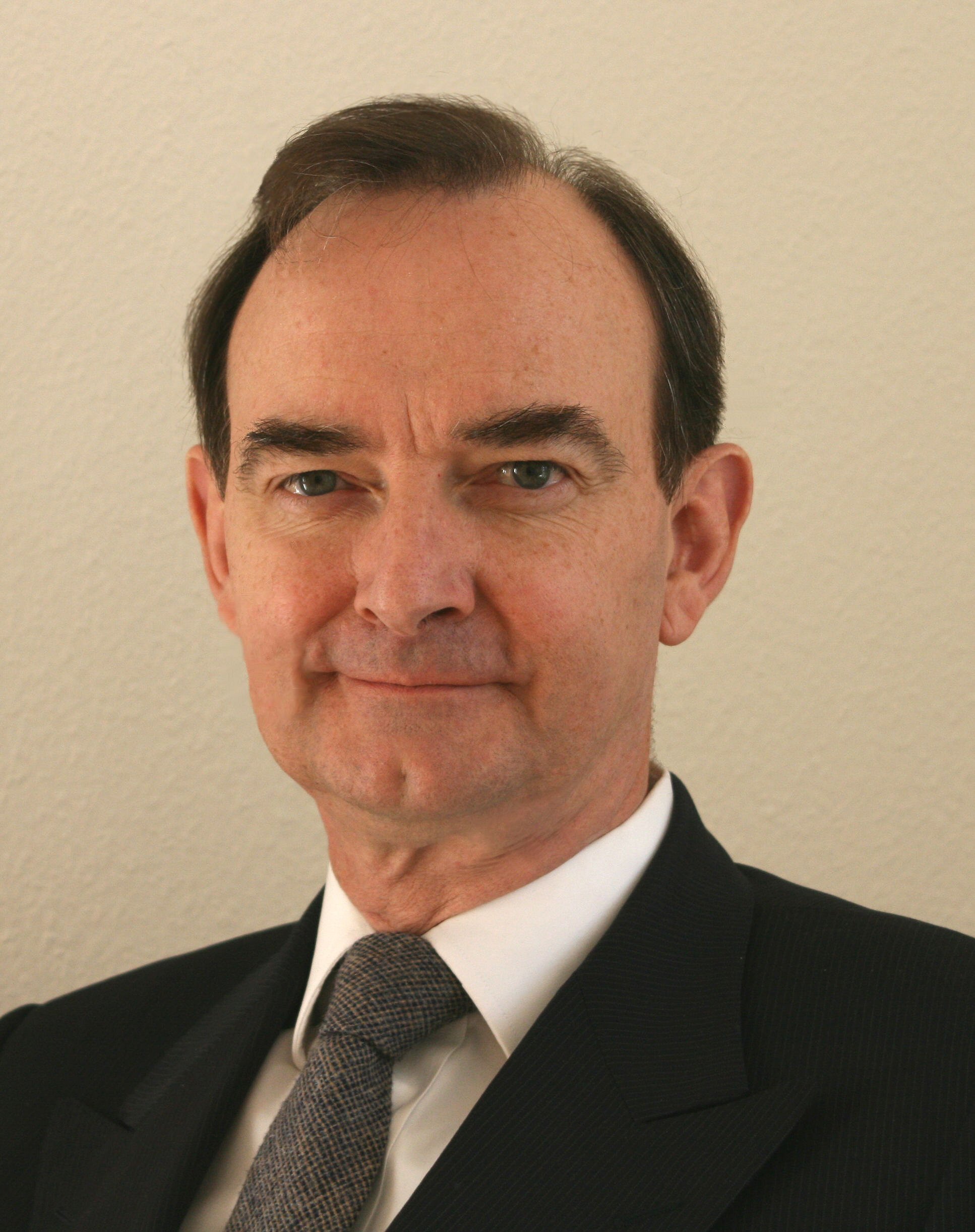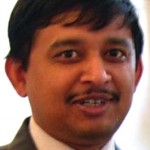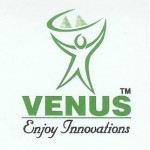Archive: akampion Meets …
Season´s Greetings from akampion
Dear friends & colleagues,
as 2015 is coming to a close, we would like to take the opportunity to thank you for your continued support and wish you a relaxed, peaceful Christmas holiday and a Happy New Year!
Our highlights in 2015 include
- the continued expansion of akampion´s client base,
- the mandate as the lead IR/PR agency for Curetis´ successful IPO on Euronext , helping the company raise EUR 44.3 million including the exercise of the over-allotment option,
- strengthened strategic partnerships with colleagues in the U.S. to ensure optimum transatlantic communication programs for our clients,
- top-tier media coverage of our clients , including TV features (e.g. ARD Fernsehen), financial media (e.g. Wirtschaftswoche, Handelsblatt, Het Financieele Dagblad), special interest media (e.g. Private Wealth, Trends) and trade media (BioCentury, Clinica, Scrip, in Vivo, MedNous and many other national and international trade media).
We look forward to working with you in 2016 and wish you a Merry Christmas and a Happy New Year!
akampion Meets… Dr. Markus Hosang, General Partner at BioMedPartners
Markus Hosang, General Partner at BioMedPartners, has a strong pharmaceutical and VC background. He was previously Venture Partner at MPM Capital. Prior to joining MPM in 2002, he was at Roche, where he served for nearly 20 years in several senior management positions in the Pharma R&D organization.
akampion: If you could give some advice to aspiring or very junior venture capital professionals, what would it be?
Markus Hosang: There are usually two approaches to becoming a venture capital professional. First, you can join as an Associate or Analyst pretty early on if you have a strong scientific background, combined with a business degree (MBA). The second route is gaining extensive management and executive expertise in big pharma or biotech companies and subsequently joining a VC firm as a Partner. In general, I believe that operational experience in pharma or biotech companies is very important if you want to succeed in the venture capital industry. Even Associates or Analysts should bring some years of industry experience, not just a strong scientific background.
When I was at Roche, I was fortunate to be part of an innovation-driven environment and management team of the company. Since then, I have always been attracted to pioneering industry trends – but I also had the chance to learn from failures.
akampion: So what are your investment criteria if you look at healthcare companies?
Markus Hosang: Data, science and patents have to be convincing. Equally important are growth perspectives and market environment. The third point, which is crucial and often overlooked, is the executive team – what are their strengths and weaknesses? Will they be able to deliver? In the past, I have often been disappointed by executives and founders with a pure academic background. On the other hand, if executives join a small company from big pharma, they need to prove that they can do without a huge corporate infrastructure. Will they be moving fast enough? But I also have to admit that I underestimated a few teams in the past.
akampion: What is the key difference between US and European companies?
Markus Hosang: In the US, there are clearly a lot more serial entrepreneurs who are very hands-on and pragmatic. There is a „done it before“ attitude. We don´t really have a serial entrepreneurial spirit in European healthcare yet.
akampion: What has changed in the healthcare industry over the past ten years?
Markus Hosang: The endpoints in biopharmaceutical drug development have definitely changed – not just at the FDA and EMA, but also in terms of reimbursement criteria. For investors, the emphasis has shifted even more to exit strategies and value inflection points. Exits happen earlier – often times, companies are factually being „leased“ by milestone-driven payments, which allow for staged acquisitions instead of buying a company as a whole.
akampion: What is your opinion on the current financing situation in Europe?
Markus Hosang: European private equity financings have been very generous in the past, but this has changed over the last couple of years. There is currently a shortage of funds in Europe, and as a result, there is a weeding out going on, which has even started to affect good companies. However, an excellent management team will source other funds and identify financing alternatives, such as grants. A good example here is Okairos in Italy.
akampion: At what stage do you invest in a company? And why did you choose to focus your investments on the Alpine region?
Markus Hosang: Before I consider an investment, the founders should have done their homework properly and also should have made some initial investments themselves. There must be a convincing business plan, maybe they have even won a business plan competition. The seed round must have completed successfully. Start-ups in Switzerland often hire mentors or advisors with a pharma background, which is a great advantage. The Alpine region is a very fertile ground. It has a very strong pharma industry and infrastructure, there are excellent universities and research institutions, and everything is located in the vicinity, easy to reach in a few hours. The latter point is particularly important for us as very active and involved investors, as it permits us to see our companies without too much (travel) efforts and on short notice, if required.
akampion: What motivates and inspires you in your daily work?
Markus Hosang: I very much enjoy applying my professional skills to a continuously broadening scope of activities. And I am thrilled to generate value and to keep track of a quickly developing sector, and perhaps, albeit indirectly, contribute to the solution of a still unmet medical need. Last not least, I love the collaboration and interaction between various teams and boards that I am on. Therefore, transparency and fairness are extremely important in my work.
akampion Meets… Martin Austin, Founder & Managing Director of TransformRx and Director of Alma Bio Therapeutics
akampion: When we first met, you were with Paul Capital Partners and very actively scouting the European biotech scene for potential deals. Since then, you have founded TransformRx and now you are also a Director at Alma Bio Therapeutics – how did that come about?
Martin Austin: I left Paul Capital because in my view, the market for royalty funds was beginning to narrow and only companies with sufficient revenues could really fit into the investment model. At the same time, the market trend moved more towards development and R&D. So I was wondering how to address these developments, and so I eventually acquired the Swiss subsidiary of Paul Capital and founded TransformRx GmbH.
Since I know operations in the pharma and the investment industries very well, the idea was to offer financial intermediation services. How can a biotech get money? How to invest in biotech?
akampion: We definitely believe there must have been a market for financial intermediation in the biotech sector – there still is!
Martin Austin: Indeed. But in addition, I also had clients calling up to get support in business development and commercialization, since I have been working in that space for a long time. So I took on these projects and had a request to develop a my commercial BD course with CELforPharma in Brussels into a format for a business development course at the University of Basel. It is part of a Master´s program at the European Center of Pharmaceutical Medicine ECPM which offers a range of training courses in the field of drug development, including leadership and biobusiness development. And then I had an invitation to run a course in China, which I have been running annually since 2007.
akampion: So one project led to another…
Martin Austin: Yes – and it continues! I received similar requests from France and elsewhere which led to my first book on Business Development in the Pharmaceutical Industry being published.The next book is out this year, by the way, and will focus on commercializing IP in healthcare. Just to give you some background, I have also been advising various technology transfer offices for a several years and this sparked the idea for the second book.
akampion: And now you´re also with Alma Bio Therapeutics, a company developing novel antiinflammatory drugs to treat Crohn´s disease and Ulcerative Colitis.
Martin Austin: Right. The CEO is a former “student” of mine. She contacted me because in Israel, the conditions for biotech companies are not very favorable, so the idea was to transfer IP and the company from Israel to Europe. Alma, for example, has a product licensed from the Weizmann Institute. The company is now situated at the Basel incubator and is looking for further funding from angel investors and VCs. The lead product is a synthetic gene sequence encouraging the body to produce a protein called HSP70. HSP70 acts as a transient signal to T-regulatory cells in the immune system which re-harmonises the body’s responses to inflammation. The initial mouse experiments have yielded very good results, so we have a mammalian proof-of-principle – and the manufacturing is already in place as well. I am very glad to be part of the company´s team because I believe that Alma as a start-up company is very well set. So we are ready for investment!
akampion: Thank you, Martin! We will keep our fingers crossed for Alma´s financing and hope to be able to read your new book soon.
akampion Meets… Dr. Sanjay Mohan Shrivastava, General Manager of Venus Pharma GmbH
akampion: Can you tell us about the history of Venus Pharma?
SMS: Venus has its origin in the Indian generics industry and was founded in 1989 as Venus Remedies Ltd. However, the company meanwhile is very strong in innovative pharmaceutical products, in particular in fixed-dose combinations. Venus operates a large research center in India, which is accredited by the Indian government. Moreover, the company holds about 370 patents, has around 100 products and employs about 1,500 people in India alone. There are currently six offices worldwide – Venus Pharma GmbH was established in Germany in March 2006 and meanwhile has a staff of 15 full- and 30 part-time employees.
akampion: Why did the company decide to establish a German subsidiary?
SMS: We had innovative products and wanted a presence in the German market, as it is a very important market in itself and because it will help us to expand to other European countries. We acquired the Werne facility, which now serves as our EU-GMP facility for packaging of tablets and injectables, including quality control testing, batch release, packaging, warehouse and logistics etc. At present, we are the only Indian company that has accomplished this.
akampion: Which products are on the market in Europe right now?
SMS: We have CTD dossiers available for Meropenem, Gemcitabine, Irinotecan, Topotecan and Docetaxel, and we are searching for partners in various European countries. For Meropenem, Gemcitabine, Irinotecan and Docetaxel we have already been granted a Marketing Authorisation in some countries, and in addition we have ongoing registration procedures for these products as well as for Topotecan and Sulbactomax, a patent protected research product in Europe.
akampion: What are your plans for the future?
SMS: For the near future, we are planning to expand our product portfolio and to prepare CTD dossiers for anti-cancer drugs particularly Oxaliplatin and Cisplatin, and for the next years we have ambitious plans: within the next 2 to 3 years we aim to have a minimum of 15 products with European marketing authorization, including Sulbactomax, our proprietary novel antibiotic combination product, and a couple of other innovative medicines of cephalosporin and carbapenem group.
akampion: Can you detail the innovation of Sulbactomax?
SMS: Sulbactomax is patent-protected combination of Ceftriaxone, Sulbactam and VRP 1034. Ceftriaxone, a cephalosporin, breaks the bacterial cell wall, Sulbactam inhibits beta-lactamases, enzymes that are expressed by bacteria resistant to many antibiotics, and VRP 1034 is a potent chelating agent which competes with the microorganism for essential metal ions. As a result, it destabilizes the bacterial cell wall structure and enhances the susceptibility of bacteria to the antibiotics. This product provides excellent results against beta-lactam resistant E. coli and other bacteria.
akampion: Are you also interested in in-licensing of drugs or drug candidates?
SMS: No, not at present. On the contrary, we are seeking to out-license drugs. But we might be interested in in-licensing compounds to develop a new formulation. Already, we in-licensed a molecule suitable for cancer diagnostics for which we developed a new formulation.
akampion: How long have you been living in Germany now? We assume life here is pretty different compared to India?
SMS (laughs): I moved to Germany with my family two years ago. First of all, the weather is quite different. Of course, it is also another culture, but we have always been met with openness and friendliness here, even though sometimes people are a bit more reserved than in India. And certainly, rules and regulations are different. The move has probably been easier for me than for the rest of my family – I spend most of my time in the office, anyway.

